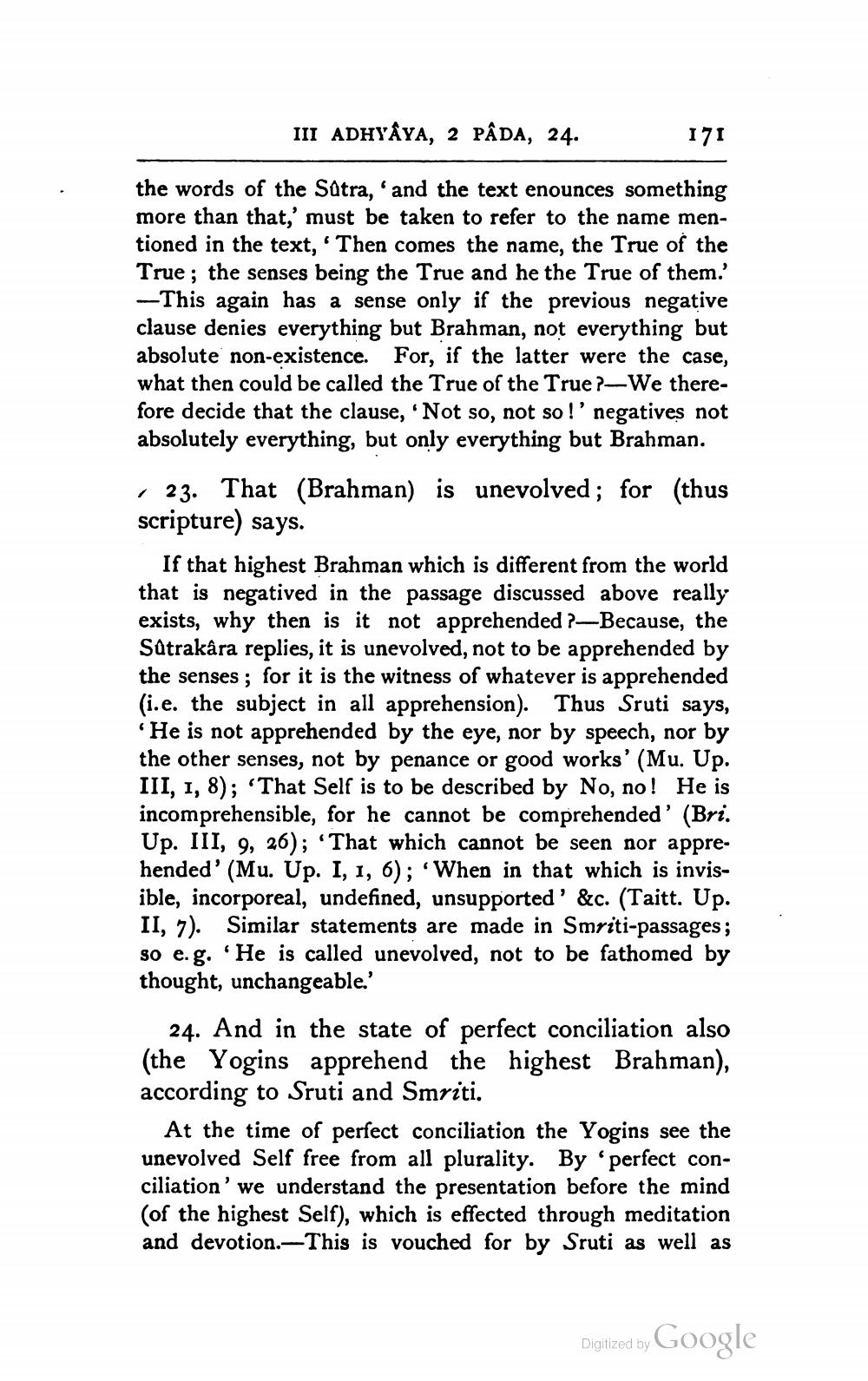________________
III ADHYAYA, 2 PÂDA, 24.
171
the words of the Sotra, and the text enounces something more than that,' must be taken to refer to the name mentioned in the text, 'Then comes the name, the True of the True; the senses being the True and he the True of them.' -This again has a sense only if the previous negative clause denies everything but Brahman, not everything but absolute non-existence. For, if the latter were the case, what then could be called the True of the True ?-We therefore decide that the clause, Not so, not so !' negatives not absolutely everything, but only everything but Brahman.
23. That (Brahman) is unevolved; for (thus scripture) says.
If that highest Brahman which is different from the world that is negatived in the passage discussed above really exists, why then is it not apprehended ?-Because, the Satrakâra replies, it is unevolved, not to be apprehended by the senses; for it is the witness of whatever is apprehended (i.e. the subject in all apprehension). Thus Sruti says, 'He is not apprehended by the eye, nor by speech, nor by the other senses, not by penance or good works' (Mu. Up. III, 1, 8); “That Self is to be described by No, no! He is incomprehensible, for he cannot be comprehended' (Bri. Up. III, 9, 20); 'That which cannot be seen nor apprehended' (Mu. Up. I, 1, 6); 'When in that which is invisible, incorporeal, undefined, unsupported' &c. (Taitt. Up. II, 7). Similar statements are made in Smriti-passages; so e. g. 'He is called unevolved, not to be fathomed by thought, unchangeable.'
24. And in the state of perfect conciliation also (the Yogins apprehend the highest Brahman), according to Sruti and Smriti.
At the time of perfect conciliation the Yogins see the unevolved Self free from all plurality. By 'perfect conciliation' we understand the presentation before the mind (of the highest Self), which is effected through meditation and devotion. This is vouched for by Sruti as well as
Digitized by
Digized by Google




